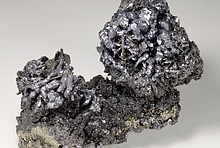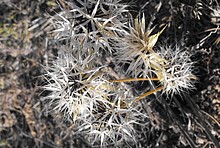Home PageAbout MindatThe Mindat ManualHistory of MindatCopyright StatusWho We AreContact UsAdvertise on Mindat
Donate to MindatCorporate SponsorshipSponsor a PageSponsored PagesMindat AdvertisersAdvertise on Mindat
Learning CenterWhat is a mineral?The most common minerals on earthInformation for EducatorsMindat ArticlesThe ElementsThe Rock H. Currier Digital LibraryGeologic Time
Minerals by PropertiesMinerals by ChemistryAdvanced Locality SearchRandom MineralRandom LocalitySearch by minIDLocalities Near MeSearch ArticlesSearch GlossaryMore Search Options
The Mindat ManualAdd a New PhotoRate PhotosLocality Edit ReportCoordinate Completion ReportAdd Glossary Item
Mining CompaniesStatisticsUsersMineral MuseumsClubs & OrganizationsMineral Shows & EventsThe Mindat DirectoryDevice SettingsThe Mineral Quiz
Photo SearchPhoto GalleriesSearch by ColorNew Photos TodayNew Photos YesterdayMembers' Photo GalleriesPast Photo of the Day GalleryPhotography
╳Discussions
💬 Home🔎 Search📅 LatestGroups
EducationOpen discussion area.Fakes & FraudsOpen discussion area.Field CollectingOpen discussion area.FossilsOpen discussion area.Gems and GemologyOpen discussion area.GeneralOpen discussion area.How to ContributeOpen discussion area.Identity HelpOpen discussion area.Improving Mindat.orgOpen discussion area.LocalitiesOpen discussion area.Lost and Stolen SpecimensOpen discussion area.MarketplaceOpen discussion area.MeteoritesOpen discussion area.Mindat ProductsOpen discussion area.Mineral ExchangesOpen discussion area.Mineral PhotographyOpen discussion area.Mineral ShowsOpen discussion area.Mineralogical ClassificationOpen discussion area.Mineralogy CourseOpen discussion area.MineralsOpen discussion area.Minerals and MuseumsOpen discussion area.PhotosOpen discussion area.Techniques for CollectorsOpen discussion area.The Rock H. Currier Digital LibraryOpen discussion area.UV MineralsOpen discussion area.Recent Images in Discussions
Techniques for CollectorsOxalic Acid

30th Sep 2004 02:32 UTCKimberly
Does anyone know where else I could try finding it...other than online??
Thank for your help!!
Kimberly (^o^)

30th Sep 2004 14:36 UTCDavid Von Bargen

30th Sep 2004 15:48 UTCChris van Laer
Oxalic acid can be purchased from a local drugstore, but it's purity is usually "reagent grade" or pharmecuetical grade, making it very costly. I use oxalic acid not only for mineral cleaning, for which it has no equal, but also in the gold refining process, as it precipitates pure gold from solution. I use a great deal of this in my shop, and we buy it bulk by the kilo (12 kilos at a time), and because it's "technical grade", it's not too expensive. As a result, we sell one-pound containers of "excess" stock to local mineral collectors for the purpose of cleaning minerals. Because of the commercial nature of this, I believe it's inappropriate for me to offer my product through this website, but you can contact me at my return e-mail address if you need any further help.

4th Jan 2005 21:26 UTCFranklin Roberts
Franklin Roberts
Austin, Texas

8th Jan 2005 12:11 UTCH Sunderland
I have a specimen of Barytes which is partly coated with - I think- Limonite.
I don't think it is ordinary Iron Oxide (i.e. Rust).
In any case regarding rust, you can buy rust remover from car accessory shops.
It goes under the name of 'Jenolite'. Though I think the industrial concentrate is more potent than that sold in shops. Jenolite contains Phosphoric Acid (as in washing powders I believe) among other things.
Isn't there Oxalic Acid in Rhubarb?
Anyway, how do I get rid of the Limonite on my Barytes?
Should I immerse the specimen in hot concentrated Oxalic Acid?
These Iron compounds tend to be quite complex.
I have managed to physically chip away some of it.
H Sun.

8th Jan 2005 14:33 UTCAlfredo
Alfredo

10th Jan 2005 13:07 UTCH Sunderland
H Sun.

25th Apr 2006 23:37 UTCDal
Just to let you all know that you can get jenolite again, just go to there website www.jenolite.com or if in the UK go to www.jenolite.co.uk
It is excellent rust remover, contains phosphoric acid so nutralises the rust better than any product I have ever used. Makes similar brands like hammerite and fertan products look like water!!
Jenolite also told me that they are planning to have the liquid form back in stock by summer so its back to business for all us that want a reliable well respected rust remover! I am over the moon that it is finally available again.
Good luck to you all.
26th Apr 2006 01:13 UTCJeremy Zolan
26th Apr 2006 19:10 UTCJesse Fisher Expert
The active ingredient in "Iron Out" is sodium dithionite (also called sodium hydrosulfite). This chemical is not acidic, and is a better choice for removing iron stain from delecate minerals than oxalic. It is also less toxic. See the thread on cleaning fluorite for a more complete discussion.

24th May 2006 20:33 UTCDeb S

3rd Aug 2006 15:56 UTCDebS

13th Aug 2006 09:25 UTCZbynek Burival Expert
Merck http://www.merck.com
Sigma-Aldrich http://www.sigma-aldrich.com
If its not marked as a poison or very dangerous chemical theres no problem:) Im not sure about USA but in Europe I can buy most of chemicals when Im over 18 years including strong mineral acids etc.

13th Aug 2006 10:45 UTCBarry Flannery Expert
Just treat it with respect and you will be fine.
Barry

12th Sep 2006 23:05 UTCThomas Henderson

1st Nov 2006 10:15 UTCDonovan Wood
i live in south africa and none of the drugstores could help me so i got a hold of one of our local chemical suppliers through the phone book and they were able to supply me in bulk at a good price

1st Nov 2006 12:13 UTCChristine (Chris.) Johnson

2nd Dec 2006 09:44 UTCMark Rheinberger
Here in Australia, well in the state of New South Wales at least you can buy Oxalic Acid from Some Paint stores or Hardware stores. Not all keep it but ask and I'm sure they will get it for you. Don't buy it in liquid form, buy it in granuler form it goes much further.
One product name is "Diggers" and there is another maker but I can't recall their name. The last Oxalic acid I bought was a 1kg bottle and cost about A$26.00.
Mark.

2nd Dec 2006 15:07 UTCJon Ertman

2nd Dec 2006 17:49 UTCeric
-------------------------------------------------------
>
> Isn't there Oxalic Acid in Rhubarb?
>
>
>
> H Sun.
not sure. i do know there is oxalic acid in Lamb's Quarter, a common garden weed. it is also quite nice in a salad. eat some dairy to counter the effects of the OA. perhaps you could make a tincture of lambs quarter to concentrate the OA in it.
eric

3rd Dec 2006 12:25 UTCMark Rheinberger
Mark
6th Dec 2006 08:33 UTCLloyd Llewellyn Expert
Your muriatic acid may work faster than oxalic at removing carbonates, but will hardly touch any iron-staining, unless, of course, the iron staining is itself attached to a reactive carbonate.
12th Dec 2006 03:22 UTCJesse Fisher Expert
Jesse

27th Dec 2006 03:38 UTCAndrew G. Christy Manager
Safety:
1. oxalic acid complexes iron, which is why it is a much better remover of iron stains than you would expect from the strength of the acid alone (although it is still a strong acid compared to most other organics). The ability to make iron unavailable to your body would indeed damge your blood if ingested, but the acidity is a bigger worry. I'm not sure about Barry's inhibition of clotting, though.
2. it readily reacts with calcium and magnesium, in 'hard' water, in minerals, and in body tissues, to form sharp, insoluble crystals of oxalate salts. Plants such as rhubarb and grape vines use this to store those cations in their leaves. When crystallisation of small oxalate needles happens in people naturally due to metabolic malfunction, it is called GOUT, and is extremely painful. If oxalate gets into your skin, you can give yourself artificial gout. Not a good thing.
3. never ignite oxalate or strongly dehydrate it, since it will give off deadly carbon monoxide gas when it decomposes.
Botany:
Eric's "lamb's quarters" is Chenopodium album, common worlwide in temperate climates and known in the British Isles as "Fat Hen". Although a weed, it is also rather nutritious, and is a close relative of quinoa, spinach, beet, sorrel and rhubarb. Sour taste in these species is indeed due to oxalic acid. In rhubarb, this is at a tasty but non-toxic concentration in the stalks, but too high for safety in the leaves. Nevertheless, it is not strong enough to make a very useful limonite-dissolving natural extract, as far as I know. The pure, commercial compound is much more concentrated and absolutely not for consumption!
NB: because of the iron-complexing ability of oxalate, spinach is not actually that good a source of dietary iron!
Happy New Year, Everyone!

10th Jan 2007 22:23 UTCEric Tripp

11th Jan 2007 00:27 UTCAlbert Mura

21st Feb 2007 11:49 UTCAmitav
Is Oxalic acid acts as an grinding agent?
What is the better alternative to the oxalic acid in this case which is both less harmful and less costly.
Amitav

21st Feb 2007 15:58 UTCAlan Plante
Regards
Alan

23rd Feb 2007 08:03 UTCAmitav
Can u please state an alternative to Oxalic acid which is less harmful, easy to handle, comparatively cheaper and at the same time the performance is equally good.
Regards
Amitav

23rd Feb 2007 16:49 UTCAlan Plante
Regards
Alan
23rd Feb 2007 17:27 UTCPeter Haas

1st Mar 2007 06:47 UTCAmitav
If you are aware of vibro-polishing, I'll request you to help me in searching suitable chemicals which reduces the vibro polishing time substantially. As of now the time taken is at the tune of 12 to 14 hrs for fully polished (mirror) finish.
Regards
Amitav




Mindat.org is an outreach project of the Hudson Institute of Mineralogy, a 501(c)(3) not-for-profit organization.
Copyright © mindat.org and the Hudson Institute of Mineralogy 1993-2024, except where stated. Most political location boundaries are © OpenStreetMap contributors. Mindat.org relies on the contributions of thousands of members and supporters. Founded in 2000 by Jolyon Ralph.
Privacy Policy - Terms & Conditions - Contact Us / DMCA issues - Report a bug/vulnerability Current server date and time: April 20, 2024 00:45:45
Copyright © mindat.org and the Hudson Institute of Mineralogy 1993-2024, except where stated. Most political location boundaries are © OpenStreetMap contributors. Mindat.org relies on the contributions of thousands of members and supporters. Founded in 2000 by Jolyon Ralph.
Privacy Policy - Terms & Conditions - Contact Us / DMCA issues - Report a bug/vulnerability Current server date and time: April 20, 2024 00:45:45











